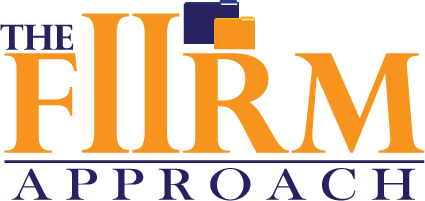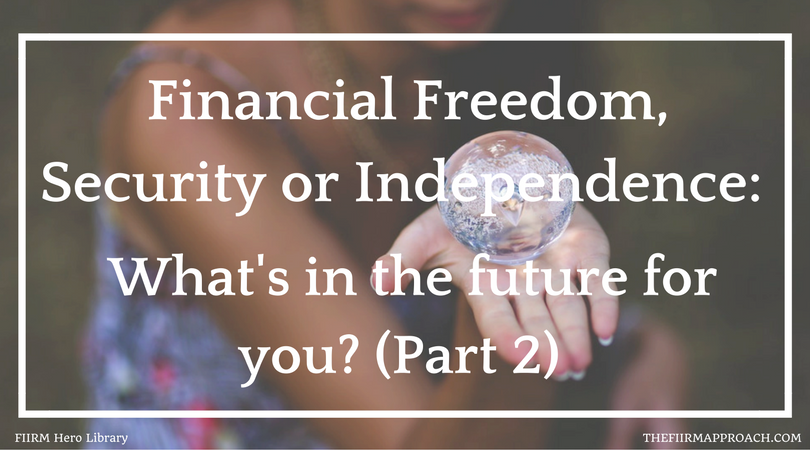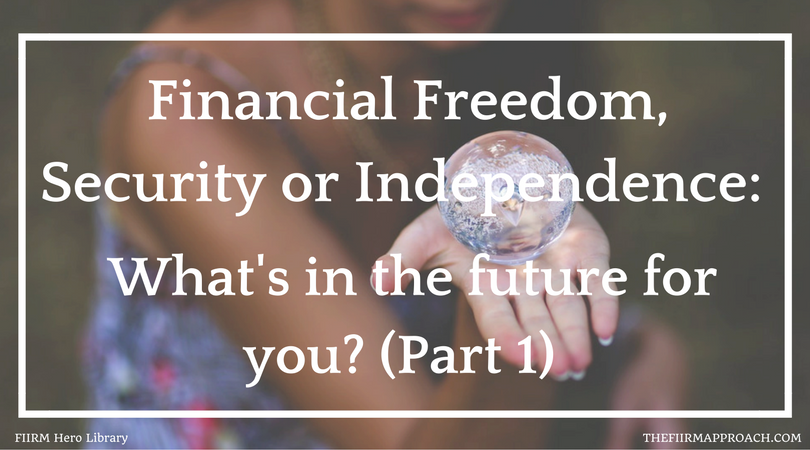
Managing Your Money As A Female Breadwinner: 12 Modern Rules to Reach Your Financial Goals
Managing Your Money As A Female Breadwinner: 12 Modern Rules to Reach Your Financial Goals
Updated – April 2021
Do you have to follow all 12 rules to manage your money better?
Of course not.
Have you ever baked a cake and skipped out on a couple of the ingredients?
How did it taste?
I’m seriously asking …
Maybe it wasn’t too bad.
Have you ever tried making a cake without flour, butter, AND sugar?
You might be able to eliminate one or two of the ingredients (hello, flourless cake) but all three!!
*Barf city – side eye*
When you’re making a cake, some ingredients are just fundamental and necessary. Other ingredients give it a little more flavor.
While I consider all the rules to be fundamental and necessary when it comes to managing your money, you are free to apply and act on what makes sense to you.
You might actually like cake with walnuts, eggs, & oats as the main ingredients.
However, if you are looking for the best cake you’ve ever had you likely need more.
Similarly, if you are looking for tips to manage your money in the best way possible I can’t really imagine why you wouldn’t take heed to these money rules.
These rules are the guiding principles for modern women that are truly ready to regain control of their money and reach their financial goals by using these simple tactics!
So, let’s get into it! If you know you’re ready to dive right in and make your money make more sense grab our ULTIMATE FINANCIAL RESOURCE GUIDE TODAY.
Rule #1: Thou Shall Not Be Pimped (Don’t Let Everyone Borrow Money)
When your family knows your paydays as well or better than you, WE have a freaking problem. It’s as if someone is literally taking bread out of your mouth.
WTF.
You: “Can I enjoy my bread please before you ask for a piece?”
They keep asking. You keep giving. Usually just to get them to shut up.
You: “Here…take it! Now, leave me alone.”
And they do (leave you alone) ……but only temporarily.
It’s a vicious cycle. They treat your money like its “our” money.
It’s time to waive the white flag.
Scream “TIME-OUT!”
“Wo-MAN Down!!”
Don’t be afraid to set boundaries to manage your money better!!!!
Sometimes, as breadwinners, our budget troubles are caused by those that abuse our kindness.
It’s okay to say “No” when you feel like your loved ones are treating you like their personal 1st Federal (or ATM, gov’ment check, payday loan, etc).
When I first read that “No” was a sentence I felt crazy empowered. It was years ago, but it sticks out to me like it was yesterday.
Just saying it aloud and then later stopping the actions that were taking my power made me feel stronger.
Try it!
Aloud.
“No.”
“No!!”
A little bit louder.
“No!!!”
Sometimes, just pausing and saying absolutely nothing is damn near orgasmic too!
To far…. Ok, I digress.
If that sounds too difficult to do, here are a few other options.
If you’re not ready to say “No “quite yet, then try “Let me get back to you.”
It’s a very simple and non-confrontational way to respond.
When you do follow-up, immediately start off the conversation with “I hope you understand…” or “Unfortunately, I won’t be able to….”
Alternatively, you can say yes but it can be a really slow yes. Like a 2-Month- Long- Slow Yes.
Maybe they will tire of waiting for you and find an alternative superhero to save them.
Lastly, I’m giving you permission not to follow-up at all (not that you need permission from me anyway 😊)
Seriously, sometimes we must be our own protectors. Don’t be flaky or unreliable, just be like one of those guards that stand in front of Buckingham Palace.
Regardless of what funny faces or weird antics they see, these soldiers are SUPER stoic. They never break a sweat or position. They completely ignore you and all the distracting bullshit (well unless you touch them). It’s actually quite amazing.
That’s who you may have to be. At least, until you are ready to say “No” and mean it.
Guess what happens when people feel like they are being ignored?
They stop calling on you for help.
Have you ever heard the phrase to whom much is given much is required?
Well much is relative and sometimes too damn much is required by those that didn’t give the money to you or help you get it anyway.
There are some of us that were the 1st to graduate from college, the only ones in our family married, the only ones that own homes or investment property or even the only ones with good credit and managing money.
From time to time, it feels like we might be paying a penalty for those blessings when people have the audacity to say things like “well, you don’t really need the money anyway” or “it’s not like you’re going to miss it” (when they don’t pay you back).
Excuse the FIIRM out of me! What did you just say?
If you’re hearing or experiencing things like this in your life, please recognize that you have entered financial pimping territory.
I urge you to get out!
Be a friend, be an ear, don’t be a martyr. You can’t carry everyone’s burden.
You can’t bail everyone out.
Sometimes it’s ok just to sip tea, listen, be understanding and do nothing.
Absolutely nothing.
Affirmation: It is safe for me to say “No” and still support the prosperity of others.
Rule #2: Thou Shall Treat, Not Trick Yourself into Debt (Don’t Use Debt for Frivolous Things)
There are times when I feel like I am more busy than productive and I’m here to tell you that there’s definitely a difference.
A BIG difference actually.
When I’m productive, I am focusing on things that (1) are important, (2) will make my life easier/solve a real problem or (3) add value to my life.
Here’s the catch. It’s usually not just one of those qualifications that make a task productive. It’s when the task covers a minimum of 2 of the 3 mentioned.
Think about your purchases in that same way. If you need to use debt to make the purchase happen, ask yourself the following 3 questions before you make the purchase:
- Is this item important?
- Will this purchase make my life easier or solve a real problem (e.g. save you time or save you money)
- Will it add value to my life?
Then ask yourself if you are using productive debt or unproductive debt.
Wait, What??
We often go into debt over our love for expensive shoes, clothes, fancy trips, not saying “no” enough to our kids or whatever your spending trigger may be.
When we use debt for those purchases that have no tax benefits and incur high-interest rates or pay high fees, that is unproductive debt. Plus, to top it off the items listed above usually, offer very little value to our lives or our personal balance sheet. It’s not an ideal way to manage your money.
If we are going to go into debt, it should be for something that adds true value to our life long-term (i.e. building a business, buying a house, continuing your education (sometimes)).
We can often get low-interest rates, tax deductions or see an appreciation in value in the item purchase, thus deeming the debt more productive.
Don’t worry Jimmy Choo will understand . . . and if he doesn’t?
F’ em. (as in FORGET… Forget him!)
Affirmation: I am minimizing to prepare for increase.
Rule #3: Thou Shall Not Turn a Blind Eye to Money (Keep an Eye on Your Money Always)
Just because you don’t THINK you are good with managing money doesn’t mean you shouldn’t have a say in what happens with your finances, especially if your partner isn’t that great with it either. Allowing the blind to lead the blind isn’t helpful in the long run.
Maybe your spouse or partner is really good with money and you find yourself saying:
“My husband handles everything I don’t have to deal with any of that crap.”
“I don’t know exactly how much money we have in the bank.”
“If something happened to _____ (insert partner or parent name), I would be in trouble… LOL”
Sorry, not sorry, but this is NOT funny to me!!
Sure, it’s my opinion and it may not be one that you share but for those who are wondering if this is a smart way to manage your financial life, I’m here to tell you that it is NOT.
I cringe when I hear people talk about their money in such a lackadaisical way because of the three D’s – disability, death, and divorce. That’s enough D’s to motivate me to get my Ass-ets in order!
Even if you’re single, you still shouldn’t be managing your money blindly- meaning it’s not ok to hide from your financial woes.
So, pull the covers from over your head and look your money straight in the eye.
DO NOT give full control of your finances to anyone or anything – not a relative, a spouse, a financial advisor, or even the signs in the sky.
It is no longer the 50’s and 60s.
Our parents and grandparents lived differently due to the constraints and traditions of THEIR time.
We must adjust to OUR time.
Hence, the reason these are called “MODERN RULES.”
Unlike generations before:
- Women can get credit in their own names today.
- Women work outside of the home and still raise children.
- It is much more acceptable for women to express independent thoughts and goals
Today, cigarette lighters are used more as car charging accessories instead of its original purpose.
Most of us probably didn’t even notice this evolution.
Your own personal preferences are one thing. Sayings like “my mother never did it that way” or “that’s the way it’s always been done in my family” is outdated.
That train of thought doesn’t fly with me . . . and it never will.
More importantly, I don’t want it to fly with you either.
This rule is about being FIIRM and summoning the courage to confront your money and your relationship with it.
I really want you to look your money straight in the eye!
You are in control and get to tell it what to do.
Affirmation: I am learning to face my challenges with money head-on.

Rule #4: Thou Shall Save the Bacon, Not the Grease (Make Saving Money a Priority)
You bring home the bacon, then use the bacon for bills and necessities, and then sometimes save whatever is left.
So many of us have not been taught to make saving money a priority.
We haven’t learned the importance of paying ourselves first and seeing the benefit of compounding interest.
Saving money, all too often, is an afterthought.
It doesn’t always feel fun, it requires patience, and our money is pulled in so many directions that at times it can be quite difficult to do. (See Rule No. 1 & 2)
We must make savings a top priority, not an afterthought that gets thrown in a random jar that you’ll find yourself using again soon anyway.
Saving leftover change is cool and it may feel good to see that jar filling but for a woman that truly takes care of business and is serious about managing her money, it shouldn’t be your only means for building an emergency fund.
Affirmation: I trust myself with large sums of money
Rule #5: Thou Shall Practice Self Compassion Daily (Forgive Your Money Mistakes)
Lack of forgiveness can cause self-destructive behavior.
We all mess up.
No one is PERFECT.
Period.
Mistakes made today won’t be your last.
Just try not to repeat the same mistakes again and again because, well…you know…that insanity thing.
Remember WHY you are working towards your financial goals and allow yourself some grace. Make your losses your lessons and remember to treat yourself when you hit your financial goals – big or SMALL!
Reap the rewards of your good decisions.
Ideas to treat yourself include:
- Eat an amazing meal. I am talking about the ones that make you moan after the first bite. Bring a friend… or not. (I am the queen of dining alone)
- Find a great Groupon for a new adventure in your area
- Have a dance party in your living room. Invite your friends… or not 😊
- Buy yourself some chocolate, flowers or a sexy new dress
- Stay a night in your favorite hotel for reason at all
- Get a massage in your own home
- Buy your favorite candles, wine and have a sexy night of reflection or journaling (you thought I was going to say something else didn’t you)
If you find that you are down in the dumps often, are feeling deeply discouraged or even depressed, then rewarding yourself with small treats may not be enough.
You may need a bigger treat from a life coach, therapist, counselor or other professional that can help you sort things out. Trust me, peace of mind is a treat unto its self.
It is not a bad thing to seek help. It’s actually the opposite.
It’s the “grown-up-I-own-my-own-shit” thing to do.
I encourage you to pull your big girl panties all the way up and get jiggy with this money rule!
Affirmation: I don’t have to be perfect to make better decisions
Rule #6: Thou Shall Not Be Foolish (Make Rationale Money Decisions)
Now I know I just told you to treat yourself and have some self-compassion buuuuut…
Treating yourself for a job well-done is not the same as being foolish and doesn’t involve your entire paycheck!
I don’t think you really need me to explain this much more, but some examples would include:
- co-signing for the unemployed
- lending money you can’t afford to lose
- purchasing a car without understanding the terms
- investing your life savings in the stock market
- buying a car based on a new job you MIGHT get
- ignoring letters from creditors
- ignoring letters from the IRS
- spending your entire paycheck every single payday
- participating in fraudulent activity with a loved one
- allowing someone else to control your accounts and spending
- spending your rent money on concert tickets (even if it is Yoncé or Adele, sorry Beehive)
I think you get my point. 😊
Foolish behavior means you are hedging your bet when the odds are stacked against you.
If you’re looking for a way not to reach your financial goals, then any of the above will do.
However, for those that are looking for the winner-winner-chicken-dinner rule to live by, this should be towards the top of your list.
Affirmation: I am focused financially on my future
If you are ready to TAKE ACTION and work on your finances take the first step and click here and grab your copy of the Ultimate Financial Resource Guide!

Rule #7: Thou Shall Rock the Cradle (Make Saving for Retirement a Priority)
We are taught to put ourselves last, especially when it comes to our children.
Don’t get me wrong, kids are cool (I even have one 😊) and their well-being is important but when it comes to our children + money, sometimes WE HAVE TO put ourselves first.
Give yourself the proper “project runway” to retire comfortably by investing early.
You can get a loan, if necessary, for your child’s college education.
You can’t get a loan to retire (although I’m sure someone is working on this idea somewhere).
Trust me – you can be a good mom and be good to your financial future at the same time.
Often, we miss out on an easy entry into saving money for retirement by not contributing to a 401K or 403B.
We feel like IRA and IRS sound too closely related and we stay far away!
Here’s how I want you to think about it.
We learned our ABCs at a very young age as the foundation to our literacy. As an adult, we can recite them effortlessly, but we may have had difficulty remembering them as children.
Today we see the benefit of understanding that simple foundation.
Making the decision to invest as early as possible in your retirement may feel like a challenge because of all your other expenses or because you feel like you waited too late to get started, but what seems challenging today will become easy & routine as you build the foundation for your future lifestyle.
Remember the hand that rocks the cradle rules the world. Let’s Rock and roll, baby!
Our children follow more of what they see than what we say.
So, SHOW them how to retire early and comfortably!!
Maybe the picture below will be your view during your retirement vacations or even your retirement life.
Affirmation: I am focused financially on my future

Rule #8: Thou Shall Not Put All Your Eggs in 1 Basket (Enough Said)
This money rule goes well with #3 -Thou Shall Not Turn a Blind Eye to Money.
This applies to people, bank accounts, investments and income streams.
This rule is not about your spouse’s, partners, soon-to-be-ex, or parent’s ability to provide for you.
I’m sure “they is nice, they is kind and they is smart” (praying you’ve seen the movie “The Help”)
This rule is about recognizing that there is a possibility that maybe one day they won’t be able to or choose not to provide the way they always have.
The concept of job security is just that. It is more conceptual than a reality for most of us.
It is becoming even more rare than normal to find someone that has worked at the same company for their entire career.
It’s also rare to find someone that has never been threatened with a possibility of a layoff or downsized.
Half the battle of reaching your financial dreams is being aware of the areas in which you are exposed to risk.
That possibility could be by choice or by force, either way, you need to be prepared for it.
Lesson: Seek multiple streams of income
Furthermore, having an account compromised and fraudulent charges hitting your primary bank account is no fun.
Generally, banks are quick to respond and resolve the issue but there are times when the resolution is delayed. When this happened there’s a possibility that your life comes to a standstill or becomes disrupted because you don’t have access to your money.
Lesson: Don’t leave all your money sitting in a single bank account.
These examples are modern reasons to diversify.
Financial stability & independence embraces diversity.
Begin to diversify today your income streams, in order to minimize the risk if you lose your job, get divorced, or something crazy like a pandemic occurs.
Affirmation: I deeply appreciate my blessings and its safe for me to pursue my financial goals
Rule #9: Thou Shall Plan for the Shit Storm (Emergency Funds are Your Friends)
Rule #8 leads us to Rule #9.
Plan, plan and plan some more.
Don’t ignore obvious things that will grow into bigger, more expensive problems. Oil changes are necessary. . . so are doctor’s appointments.
Toothaches can become root canals.
Leaky pipes can cause mold.
These are obvious things to us.
Take care of the small things early & often so they don’t become big things later.
$100 may seem like a lot of money today but there’s no question that I’d rather pay today versus $500 a month from now.
Sure, life doesn’t always go according to our plan, but you can be prepared as much as possible by having an ace up your sleeve or in your safety deposit box.
Oh . . . did I mention having a plan??? 😊.
Affirmation: I value the lessons money teaches me.
Rule #10: Thou Shall Create; Not Wait to Make More Money (Ummm, See Rule #8)
Whether it’s asking for a raise, applying for a new job, starting a new business, or seeking out some extra pocket money, you have to be proactive.
Please don’t doubt your self-worth. We all struggle with it at some point and it can continuously resurface and stop us from pursuing our financial goals.
It’s ok to ask for raise. The worse that can happen is that they say “No”.
It is not a bad thing to want to make more money.
If you’ve been saying for years that you need to do something to get more money, this commandment gives you permission to act TODAY!
So, let’s get to work!
*Cue Rihanna*
Affirmation: I deserve to attract and retain money
Rule #11: Thou Shall Let Auto Take Control (Learn to Manage Your Money & Bills Stress-free)
Auto-mate, Auto-pay and, Auto-debit should be your new money boo-thangs.
You can be progressive and date all three or be traditional and monogamous with one, but it’s the necessary step to stay on top of your bills!
So, don’t call Tyrone . . . call ‘Auto’.
Automating your bills is one of the most empowering things you can do. You are telling the universe that you are in control of your money.
You are telling the universe that you choose not to stress about paying your bills on time.
While automating requires a bit of strategy it doesn’t have to be super complicated.
What’s even better about ‘Auto’ is that you can dump him anytime you want if you find that it’s just not a good fit for you!
Plus ‘Auto’ is the ex that will never show up in the middle of the night begging for you take him back. 😊
You are in full control, even when things are on autopilot.
Affirmation: It is safe for me to be responsible and prepare for future increases.

Rule #12: Thou Shall Use Credit, Not Let Credit Use You (Use Credit to Help Manage Your Money)
As I love to say, credit is like ice cream.
It comes in many flavors and can be oh sooooo good.
But if you have too much of it, it can be hazardous to your waistline.
Just like you can’t eat chocolate chip cookie dough ice cream every day and NOT work it off, you CAN NOT charge everything to your credit cards and not pay it off!
Self-Control is like a Superpower when it comes to credit!!!
Good credit can help you:
- make more money
- get out of debt. help you land the right job
- take badass vacations
- manage your bills in a stress-free way
- cover random but expensive emergencies
Use your credit to help you build the life you want! Credit does not have to be the devil.
At times, it can be a godsend.
Affirmation: I am creating a prosperous future
Over the years I’ve gained a greater appreciation for affirmations.
After all, words have power and that’s why the affirmations are included in this blog post after each money rule.
When you feel like your resilience is being challenged in the different areas mentioned above, take some major deep breaths and repeat the relevant affirmation at least 3-5x aloud.
As an alternative, when you feel your willpower is being tested, refer to the rules and write the affirmations down!
Guess what goes great with affirmations!
Action!
If you know a friend or relative that could you use some help with their money send them the link to this blog post.
You have been given enough information to begin to help you make your money make more sense!
Now begin your progress to managing your money better.
Be patient and you’re sure to see progress!
Looking for SUPPORT…
You need something to help you stay inspired and on track! Don’t forget to grab your copy of our ULTIMATE FINANCIAL RESOURCE GUIDE TODAY.

Nikki Tucker
Founder & Managing Director
Nikki is a 16-year financial services professional, a Certified Divorce Financial Analyst ®, and the primary divorce financial strategist for The FIIRM Approach. She helps female breadwinners prepare for divorce to avoid common financial mistakes and confidently maintain their financial security. She uses proven strategies within the FIIRM Approach methodology so her clients can manage their money, debt, and credit in their new financial life. TAKE ACTION & LEARN about the tools that can help make your new money life easier. Grab your FREE Ultimate Resource Guide HERE.






Recent Comments